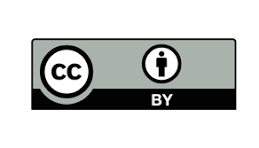UM OLHAR PSICOPEDAGÓGICO SOBRE A DISGRAFIA
A PSYCHOPEDAGOGICAL VISIONABOUT DYSGRAPHIA
Palavras-chave:
Dificuldades de aprendizagem, Leitura, Escrita, Disgrafia, Psicopedagogo, Intervenção, Fracasso escolar, Earning difficulties, Reading, Writing, Dysgraphia, Psychopedagogues, Intervention, School failureResumo
Este artigo é referente a análise do distúrbio da disgrafia ne ensino-aprendizagem, principalmente nos primeiros anos de escolaridade do Ensino Fundamental nas escolas. Apresentamos algumas definições de aprendizagem, relacionando-as às dificuldades de aprender a linguagem escrita, bem como quão claramente a criança utilizará essa linguagem para expressar suas ideias e pensamentos. Abordamos o papel dos pais, da escola e do psicopedagogo na contribuição e auxílio para sanar as dificuldades que surgem nesse processo e que sem as devidas orientações e intervenções podem levar ao fracasso escolar. Para a metodologia de trabalho foi adotado a pesquisa bibliográfica, na qual variadas fontes de estudos foram consultadas. Utilizamos como referencial teórico a concepção de educadores sobre as reflexões pessoais do objeto a ser investigado. Também consideramos a análise de aquisição da leitura e da escrita e as contribuições da Psicopedagogia nas questões referentes a problemas de aprendizagem. Como prováveis resultados, destacamos a importância da intervenção psicopedagógica nas dificuldades de aprendizagem. Apontamos que o transtorno da disgrafia se manifesta decorrente de possíveis causas como a falta de noção sobre orientação e organização espacial, lateralidade, fatores emocionais, ortografia e o desenvolvimento motor e canhoto, bem como a necessidade de estudos mais aprofundados e de grande relevância sobre o tema.
Abstract
This article is related to the analysis of the dysgraphia disorder in the teaching-learning, mainly in the first years of elementary school education in schools. We present some definitions of learning, relating them to the difficulties of learning a written language, as well as how to use a language to express ideas and thoughts. We approach the role of the parents, the school and the psychopedagogue in the contribution and help to remedy the difficulties that arise in this process and that without proper guidelines and interventions can lead to school failure. For the methodology of work, a bibliographical research was adopted in which several sources of studies were consulted. We use as theoretical reference the conception of educators about the personal reflections of the object to be investigated. We also consider the analysis of acquisition of reading and writing and the contributions of Psychopedagogy in the questions concerning learning problems. As provided results, we highlight the importance of psychopedagogic intervention in learning difficulties. We point out that the dysgraphia disorder is manifested with the incidence of causes such as a lack of notion about spatial orientation and organization, laterality, emotional factor, spelling and left-handed and motor development, as well as the need for more in-depth and more relevant studies on the theme.
Downloads
Downloads
Publicado
Como Citar
Edição
Seção
Licença
Revista Episteme Transversalis © 2010 por Centro Universitário Geraldo Di Biase está licenciada sob Creative Commons Atribuição 4.0 Internacional. Para visualizar uma cópia desta licença, visite https://creativecommons.org/licenses/by/4.0/














